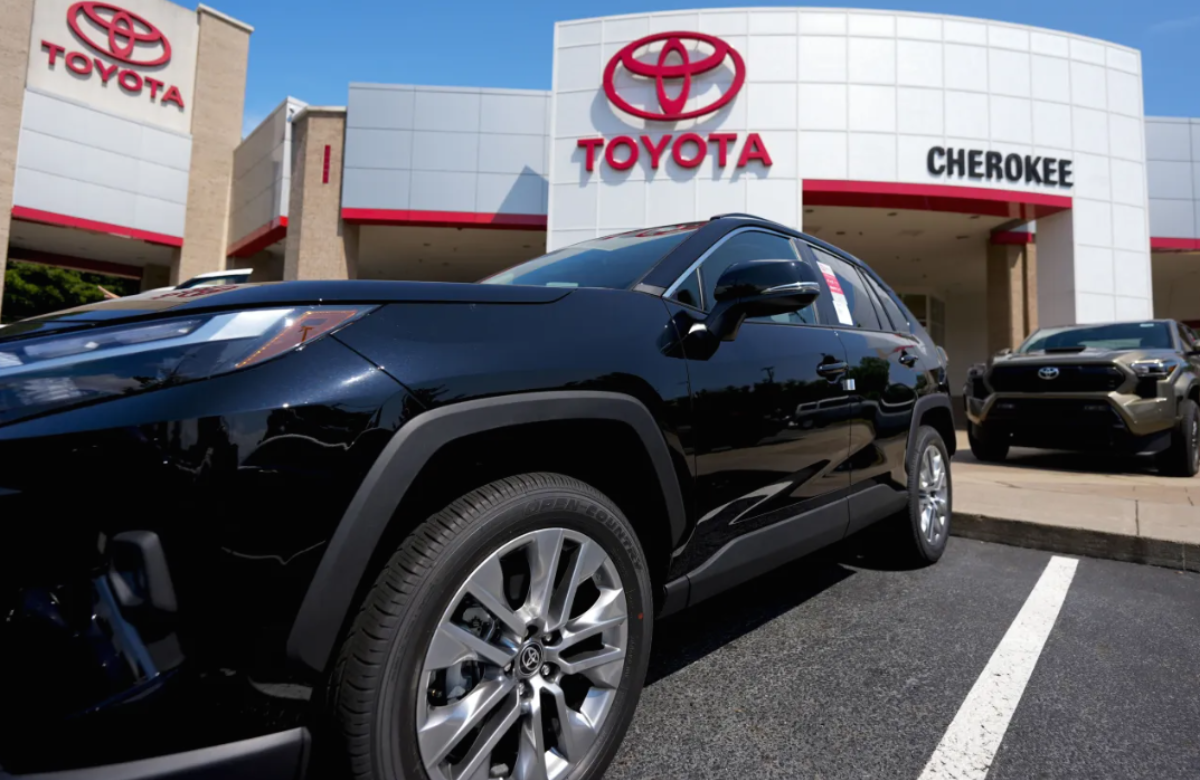Toyota reported a sharp 37% decline in profit for the April-June quarter, attributing the drop largely to U.S. tariffs imposed under former President Donald Trump’s trade policy.
The Japanese auto giant said it calculated its latest earnings assuming a 12.5% tariff on Japanese exports, including automobiles, starting this month — though the current rate stands at 15%. These trade measures significantly impacted Toyota’s earnings outlook for the full fiscal year.
Despite the challenges, Toyota’s quarterly sales climbed 3%, reaching 12 trillion yen (around $82 billion). However, net profit fell to 841 billion yen ($5.7 billion), down from 1.33 trillion yen during the same period last year.
The company explained that tariffs cut into its operating profit by 450 billion yen (approximately $3 billion). Currency exchange rates and rising costs also affected profitability, despite efforts to reduce expenses and increase production efficiency.
Toyota, which manufactures popular models like the Camry and Lexus, lowered its full-year profit forecast to 2.66 trillion yen ($18 billion), a significant drop from the earlier projection of 3.1 trillion yen ($21 billion). For comparison, the company earned nearly 4.8 trillion yen in the previous fiscal year.
In a statement, Toyota emphasized its ongoing efforts to adapt: “Despite a challenging external environment, we have continued to make comprehensive investments and improvements, including increased unit sales, cost reductions, and value chain enhancements.”
Global vehicle sales reached 2.4 million units in the quarter, up from 2.2 million a year earlier. Growth was seen across major regions, including Japan, North America, and Europe.
Analysts note that Toyota appears to be one of the hardest-hit companies by the tariffs, especially compared to other Japanese automakers, due to its scale and export volume.
In addition to the earnings report, Toyota also announced plans to build a new vehicle assembly plant in Japan. The facility will be located in Toyota City, Aichi Prefecture — home to the company’s headquarters — and is expected to begin operations in the early 2030s.
While the specific models to be produced there haven’t been decided, the new plant will contribute to Toyota’s goal of maintaining an annual domestic production capacity of 3 million vehicles. Described as a “plant of the future,” it will incorporate advanced technologies and be designed for a more diverse workforce.
Also Read:
Wall Street Tumbles and Bond Yields Drop Amid Disappointing Job Data and Fresh Tariff Moves
Tesla grants CEO Musk millions of shares worth approximately $29 billion














